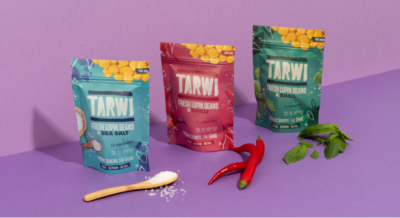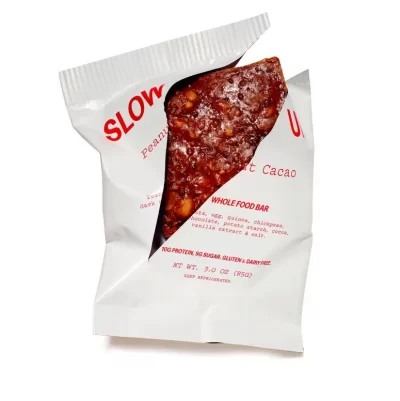If you usually go to bars, you may have seen this pulse as a common accompaniment to beer. But it is more than a snack, lupin as a source of protein is a healthy and versatile choice.
Lupin is not as popular in Brazil, being more restricted to bar snacks, but in the cuisine of European countries such as Portugal, Spain and Italy, they are commonly consumed preserved as a snack or as an accompaniment to salads, pastas or sauces. They are a type of pulse that comes from the Lupinus plant, which is in the same family as peas, chickpeas, and lentils.

GettyImages/NATALIASPB
More recently, it has been realized that lupin is much more eclectic and opens up countless possibilities for creating new vegan and plant-based foods. One of lupin’s earliest uses was as flour, which is naturally gluten-free and tastes similar to whole wheat flour. Being even more nutritious for containing little carbohydrate, lots of protein and fibers.
Benefits of lupin
The nutritional value of lupin goes much further. Research from Curtin University, Australia, showed that participants who ate lupin-enriched foods for 1 year experienced reductions in blood pressure and lower levels of LDL cholesterol, the famous “bad cholesterol”.
Just to give you a better idea, here is a list of 5 lupin benefits:
- Helps in controlling glucose levels
- Promotes muscle mass gain
- Regulates the functioning of the intestine
- Helps to control weight
- Gives you more energy
However, fortunately for us, lupin is being used to produce much more than just flour. Among the foods already made based on this seed are: snacks, ice cream, protein bars, cheeses, hummus and even eggs (if you want to see more egg alternatives, we already spoke about it here).
Lupin-based foods: more than a snack
Yes, you did not read it wrong. A Canadian brand called Nabati Foods has developed vegan eggs made with lupin and peas, being free of soy and gluten. According to the CEO of Nabati, Ahmad Yehya, it is the lupin that gives the right consistency, taste and texture to the egg.

Image: Float Foods
Ice cream made with lupin is also a reality. The American company Wicked Kitchen created an ice cream whose main idea was not to be a choice only for vegans, but for everyone who loves good ice cream, with a variety of flavors and good taste. And at the same time using lupin instead of animal protein.

Image: WickedKitchen
In other words, it’s a win-win scenario.
Even cheese, which is considered one of the most difficult foods to develop a tasty alternative without animal protein, was produced using lupin and pleased even the most skeptical consumer. Who saw in the use of the grain the chance to create a cheese with a mild flavor, soft and creamy consistency.

Image: VegantCuisine
Snacks:
As we said at the beginning, lupin is more than just a snack, it is an alternative source of protein. However, for those who already knew about lupin and consumed it as a snack and appetizer, the range of options is now much greater. In Portugal, for example, the Tarwi brand has developed a snack that is much richer in protein than the common options on the market.

Image: Tarwi
Or if you’re a bodybuilding enthusiast, you’ll love to know that protein bars made from lupine have super-reduced carbohydrate values and a range of flavors, such as: peanut butter, lemon, coconut and cinnamon.

Image: slowup.co
There are options for all tastes and demands, all created based on this pulse that has been consumed since the Roman Empire and is ready to conquer the world.
Sources: VegNews, Público.pt, TrendHunter, HiperSuper.pt, FoodandNutrition.org, CurtinUniversity.edu, uol.com, r7.com, Lusíadas.pt, VegantCuisine





















